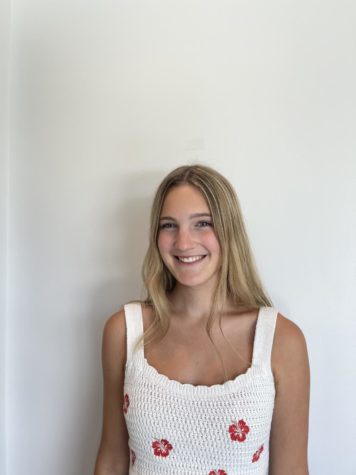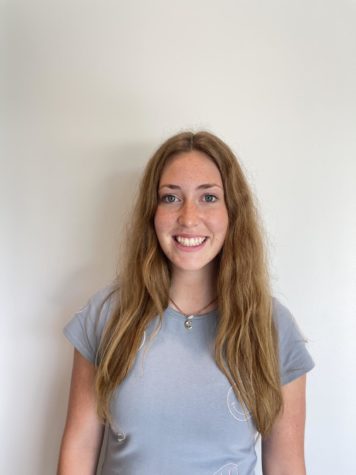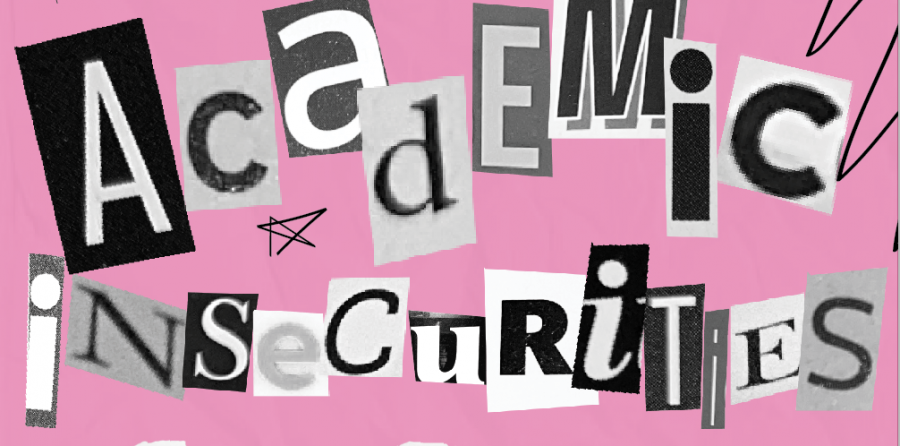All About Insecurities
It’s no surprise to most that many students these days feel a nearly paralyzing pressure to succeed in the classroom as well as an unhealthy amount of academic stress. This excessive level of anxiety brought about by schools across America has become the norm, leaving many students with the pointless direction to “just deal with it” and the daunting assertion that “this is what the real world is like.” High school students of nearly every overgeneralized, Breakfast Club-esque stereotype, from the brain to the athlete to the princess, find themselves struggling to meet not only their own academic expectations but also those of everyone else in their current and future lives. Even those who have managed to excel scholastically by the world’s standards must deal with their own versions of one of the most common areas of self-doubt today — academic insecurity.
Individualized Intelligence
Multiple schools and districts have students who seek or need higher education, and the gifted program was developed to help them receive the learning they need.
Sophomore Audrey Che has been a part of the gifted program since second grade and has continued with it in high school.
“It’s a special education program — if you’ve been identified for it, it’s because they think you’ve demonstrated higher levels of learning,” Che said. “It’s also because they think you could use an IEP, which is an Individual Education Plan.”
Being gifted isn’t only a classification in school; there is also a course available to gifted students. 
“There’s a separate class you can take, but it’s optional in high school,” Che said. “I don’t personally take it, but I know you can do different things in that class, too.”
According to Che, being in gifted has been a safe setting for her during her years in school.
“It’s always been a fun place for me, like when I took the class in middle and elementary school,” Che said. “It was really fun because a lot of my friends are in it. We got to do the things we wanted to do and explore different topics we were interested in.”
Being smart isn’t always considered ‘cool’ among some high schoolers, however. Che said she experienced a few negative remarks on her participation in gifted.
“There’s always annoying kids who’ll call you a try-hard or a nerd,” Che said. “It’s never bothered me; it’s just mildly annoying.”
With the various academic demands of the gifted program, Che explained stress was a natural occurrence.
“The expectations I place on myself [are very high],” Che said. “My parents and teachers are all very supportive, and my parents especially stress that I just need to try my best. I put a lot of pressure on myself to do better, and sometimes it can be pretty stressful.”
Even with the negatives, Che has always enjoyed being in the gifted program. It has been something for her to grow in knowledge and learning.
“It’s an opportunity to challenge myself,” Che said. “When I was younger, I would get to do harder things in class. That was a great way for me to learn more things.”
Comparison Catastrophes
High school is a place full of standardized testing, a multitude of classes and some very stressed students. As an AVID teacher, Madi Plankers speaks with students on a daily basis about the pressure that grades, GPA and test scores can create.
“I always try and remember that you are humans as well as students,” Plankers said. “I’m always trying to look out for your mental and emotional well-being, as well as your academic achievements.”
High school is challenging because students may not thrive in each subject.
“As you grow up and enter the real world, you get to specialize,” she said. “High school is one of those times where you’re still being exposed to all the different subjects. That can lead kids to feel discouraged or insecure because it’s hard to be good at everything.”

Many students use their scores and grades as a way to compare themselves to classmates. Every teen’s scores will differ, so comparing can be detrimental to people’s self-esteem.
“You need to look at your performance only because no one is like you,” she said. “GPA holds some importance and value in the world, but it is not everything. It’s not your full story.”
Scores can be a large cause of educational insecurity in many, so Plankers suggests to students to keep quiet about their results.
“Don’t compare your number to other people’s numbers because their personal best is different from your personal best,” Plankers said. “High school is the time when you are going through a lot of insecurities in general, and I truly think comparison is the root cause of a lot of that.”
Navigating their way through high school, many will struggle at some point in time. During difficulties, students sometimes forget about the many learning resources Blue Valley provides, such as extra help with teachers and the math, reading and science labs. If students don’t feel comfortable reaching out for extra help, Plankers advises students to communicate with their teachers to find a better route to help them succeed.
“I always try to encourage students to realize that we’re not as scary as you think,” Plankers said. “When you let people in and communicate clearly, there’s almost always a solution.”

Stopping the Stress
With the concerns regarding COVID-19 on top of the continuing push of AP and advanced curriculum, students have experienced increasing levels of stress. Assistant Principal Mark Dalton has seen how the inconsistent schedule and remote learning has influenced students at Blue Valley.
“Not knowing our learning mode all the time and doing distance learning, in general, makes it harder for students,” Dalton said. “You have to motivate yourself to do the homework. [If] you’re not doing that, [it creates] all kinds of stress because now you’re behind.”
The lack of a consistent schedule for everyone in BV affects a vast majority of students, developing a sense of optionality when it comes to remote learning.

“When things start to pile up on you, it’s so easy to grab [your phone] and [stop paying attention],” Dalton said. ”One thing [students] could do [to help stay focused] is to talk to their teachers and seek out help or set a schedule you can make yourself.”
AP and other high-level education courses show a concrete correlation to success in college; however, the sheer difficulty of the classes, as well as the pressures from outside sources, create a responsibility to uphold those expectations.
“It’s an external stress [students] are feeling because the class before had many different achievements,” Dalton said. “AP courses are hard, so you have to keep up. If students focus on a few courses rather than a whole schedule of them, it would stop them from becoming so stressed.”
BV has taken steps in the past to directly combat the uprising of student stress in regards to high-level classes, but the pressure is still evident in students all around the school.
“We took away [class] ranking for the district due to the stress people were feeling to get in the top 10 — they’d take every AP class they could take,” Dalton said. “We’re trying to eliminate the stress students feel when trying to become the best.”
Personalized Program
Learning is different for everyone and junior Reagan Nowak shares her experience of having an IEP.
Growing up Nowak said she always needed an extra push when it came to reading and math.
“If I didn’t understand something in elementary and middle school, I’d get so frustrated,” Nowak said.
This year was Nowak’s first time testing into the program, and she works with a caseworker.
“A caseworker is someone that you meet with every day, and they get on you if you have missing assignments,” Nowak said. “She checks our grades weekly, and she can help with any subject that you need.”
Nowak said there are other adults to help with specific subjects like social studies, science and math.
“It’s almost like a study hall,” Nowak said. “You get more help.”
Describing her learning style as different from a normal student, Nowak tends to learn slower and needs more time.
“In math, if we’re taking a test, I go into a different room, and I have someone there reading me the questions,” Nowak said. “It’s a part of my accommodations that I have for my IEP.”
Nowak has felt judged for being in the program and for having a different learning style.
“I used to be embarrassed to walk out of the classroom to go take a test or grab a textbook,” Nowak said. “I don’t think people understand what it’s really like to have an IEP or learning disability.”
Nowak said having a learning disability has made her mentally confident in school.
“It [has] made me more headstrong — if people ask me about it, I won’t break down and be nervous about it, I’ll just straight up tell them,” she said. “It has put me through emotional stages.”
Nowak said being on an IEP isn’t a bad thing because it’s there to improve your grades and make you a better student.
“You have to put in the work and self-advocate,” Nowak said. “Don’t be ashamed of who you are, and don’t let your learning disability have an effect on how you look at yourself.”
Differences Don’t Divide
There are 1,561 students at BV, and they are all very different people.
With a variation of students comes a variety of learning styles. Eli Kanarek, an 18-year Blue Valley teacher, has seen first hand the struggles that come with having such a wide range of personalities.
“Education is set up for the most common people — you’re going to get kids that are at either end of the average,” Kanarek said. “The kids at the ends tend to be the ones that are not included. They feel like they’re not learning how they need to learn.”
Kanarek has worked with students who have learning disabilities and other types of education setbacks. His students all have IEPs.
“What an IEP does is it allows the curriculum to be more individualized,” Kanarek said, “For the student, something as simple as extending the time on a test can allow them to process information better.”
While an IEP is set up to help students who learn differently, it can also come with its own challenges.
“[The students] are worried about how other kids perceive because they’re on an IEP,” Kanarek said. “It hurts them in a sense instead of helping them. They’re like, ‘Oh no, I’m different,’ which can take precedence over their grades.”
Several students struggle with insecurities, many of which are brought on by school and all that comes with it.
“Unfortunately, high school kids worry about what other people think of them,” Kanarek said. “They’re worried about the teacher calling on them. They’re stressed — and that takes mental energy — then school becomes overwhelming.”
While Kanarek said grades are an important factor that can open or close doors in the future, it shouldn’t sacrifice a student’s mental health.
“You can strive for the A’s if that’s what you should be capable of doing but only if it was not a sacrifice of your other aspects of your life,” Kanarek said. “There are very successful people who did not do well in high school.”

Generally Gets Good Grades
As a hybrid student, freshman Sam Dunton has adapted well to all of the unexpected changes this school year.
“I like learning from videos at home, like flip learning,” Dunton said. “It’s just a different type of learning, but overall it’s easier.”
Online schooling has given Dunton the freedom to work independently.
“Some students like learning from a teacher and then they can ask questions,” he said. “I like learning from videos and then just doing my own work.”
Despite the rocky transition from middle school due to COVID, Dunton is enjoying his freshman year and the independence it offers.
“I like high school even though the work is harder and [there is] a lot more of it,” Dunton said. “You get more freedom overall, and you’re just older. I think it’s better.”
Dunton considers himself to be an average student who does all his work and generally maintains a high GPA.
“I’d say [an average student] has B’s and A’s,” Dunton said. “[What makes you a good student is] trying your hardest and doing all of your work — even if you don’t get good grades.”
In preparation for finals, Dunton studied by testing his knowledge and tracking his progression.
“If I don’t get something, I try to quiz myself and see what I know and then study what I don’t know and quiz myself again so I get it all,” he said.
Beyond academics, Dunton enjoys involving himself in other aspects of BV.
“I play soccer for the school,” he said. “I kind of want to join the Student Council but maybe next year.”
Although Dunton has been able to find positives in the changes this school year required, he also acknowledges there’s a lot he’s missed out on.
“I don’t think I’m getting the full high school experience yet,” Dunton said. “But it’ll come.”
Managing the Madness
Between sports, clubs, work and other activities, high school students have more than enough on their schedules and their minds to balance with all things school and academics-related.
This constant revolving door of expectations set by parents, teachers, colleges, coaches and even the students themselves causes many teenagers across America, such as senior Maddie Gessler, to occasionally feel bombarded with assignments or with scholastic anxiety and insecurity.
“I think being in school for eight hours a day and having to go home and do extra work can cause you to be really stressed and overwhelmed,” she said.
Gessler, like many other driven students in the BV district, points out that she goes the extra mile in academics in order to achieve the grades she desires.
“I don’t really consider myself an average student because I do put in a lot of work,” she said. “I think I have really applied myself and tried my hardest in every class.”
In addition to managing the final grades that will affect her high school GPA, Gessler went through the college applications process this year. Although she moved through steps to admission swiftly, that’s certainly not the case for everybody else applying to colleges in the midst of a pandemic.
“It was a lot easier [for me] because I knew where I was going really early,” she said. “I know my best friend has had a lot of stress and anxious feelings toward it because she’s unsure about where she’s going.”
Before Gessler can focus on her future grades or activities while attending the University of Arkansas, she feels an obligation to conclude her high school career with a strong academic performance.
“I definitely feel pressured by my parents to get certain test scores,” she said. “At this point, it’s needed for college.”
This academic stress, Gessler explains, also bleeds into and is affected by other areas of her life, like cheer, dive, NHS and work.
“There’s a definite correlation between [school and activities],” she said. “Whenever I have more homework, I’m more stressed in activities, and whenever I have more going on in my activities, I’m more stressed with school, so they play off each other.”
Though she knows no other way, Gessler described what she feels to be the pros and cons of attending school in such an academically competitive district.
“I think we have more pressure on us to perform better,” Gessler said. “I also think [going to school in the BV district] gives us more opportunities and lets us learn in a good environment — it helps us thrive.”
Being Burnt Out
Our experience with school has looked different for many students the past several months. However, senior Emily Cummings’ stress levels and relationship with her classes has not.
Throughout high school, Cummings expressed her workload has caused her to become increasingly unmotivated and has overall affected her energy levels outside of school.
“Being burnt out has made me exert more energy on schoolwork,” Cummings said. “This has left me a lot more tired at the end of the day.”
With school being hybrid or fully online, she shared how this year especially all students feel a sense of exhaustion.
“I think everyone, no matter what they say, is majorly burnt out from high school and this past year in general,” she said.
Although Cummings is a senior this year, she empathizes with the underclassmen.
“Freshman year was the hardest year for me because the environment was so different from middle school,” Cummings said. “I can’t imagine how difficult it must be adjusting to high school and its workload from an online perspective.”
With this being Cummings’ last semester of high school, motivation is something she is struggling to maintain during her three classes.
“I am definitely finding it hard to stick to my studies rather than focusing on other things such as work and time with friends,” she said. “All I want to do is get on Zoom for the attendance and then dip. It’s hard to keep motivation high when I know in the grand scheme of things this last semester is meaningless when it comes to college.”
Senioritis has kicked in for Cummings, and as many others would agree, she never thought school would ever look the way it does now. If she knew then what she knows now regarding school and its workload, Cummings admits she would have taken a much easier route to graduation.
“I would tell myself that it’s OK to not go full-blown on the AP and honors classes,” Cummings said. “There is so much more to life and high school than the actual school part. You also need to enjoy the company of friends and soak up the memories while you can.”

Chloe Browning is a senior and one of this year’s story editors. This is her third year on staff and she loves taking naps in the darkroom. Chloe...

Brynn Friesen is a senior and is Web Editor of the newspaper. This is her fourth year on staff. She is also co President of the choir department. Brynn...

Frannie Lamberti is a senior and is one out of the three publication editors. This is her 4th year on staff. She is also a varsity cheerleader and...

Claire Middleton is a senior and is going into her second year on staff. Outside of school she plays club soccer and works at Fortune Wok....

Harrison Melton is a senior staff writer on the Tiger Print. Besides the publication, Harrison is a leader of Axis Dance Crew and enjoys performing...

Olivia Sherlock is a Story Editor for the Tiger Print. She is a senior, a swimmer and a professional controversial opinion writer. She would like to...

Charley Thomas is a senior and serves as Editor-in-Chief of the Tiger Print this year. At BV, she is a member of the Varsity Volleyball Team, Student Council,...




